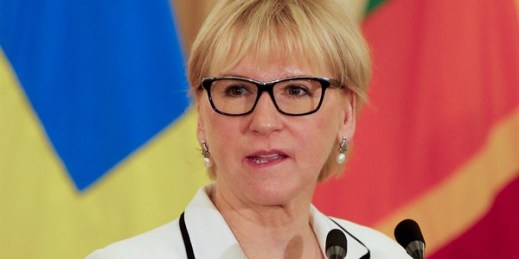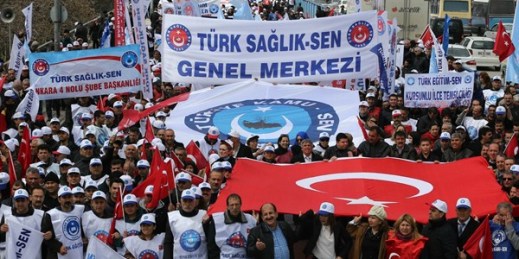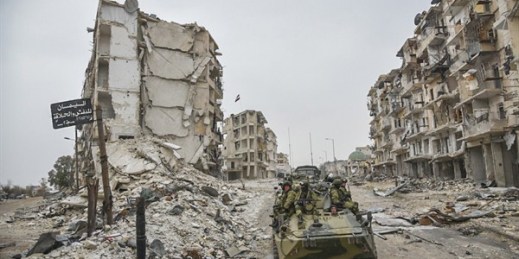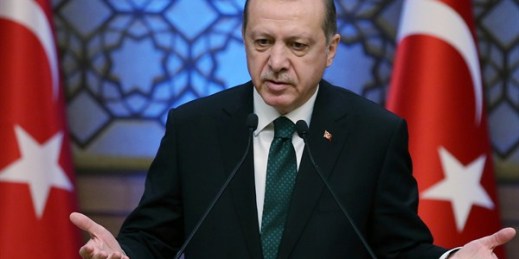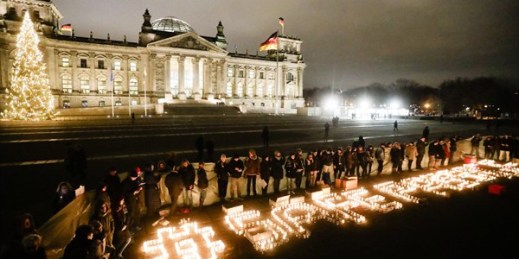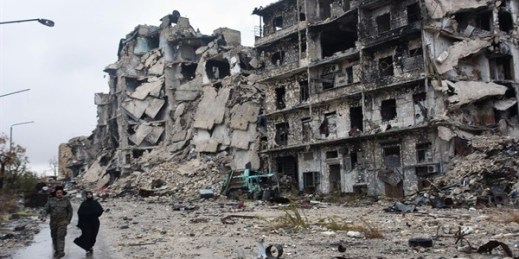
The harrowing image last month of a Turkish police officer standing over the Russian ambassador he just shot, while blaming Moscow for the devastation in Syria, captures a key foreign policy challenge for U.S. President-elect Donald Trump: How can he attempt to stabilize the Middle East by bringing conflicts to a close, rather than letting Russia and Iran lead the region into further cycles of repression and violence under the rubric of fighting terrorism? Trump’s current defense priority—“to crush and destroy” the so-called Islamic State—plays right into Russian and Iranian machinations, with their selective definitions of terrorism and scorched-earth tactics. […]

